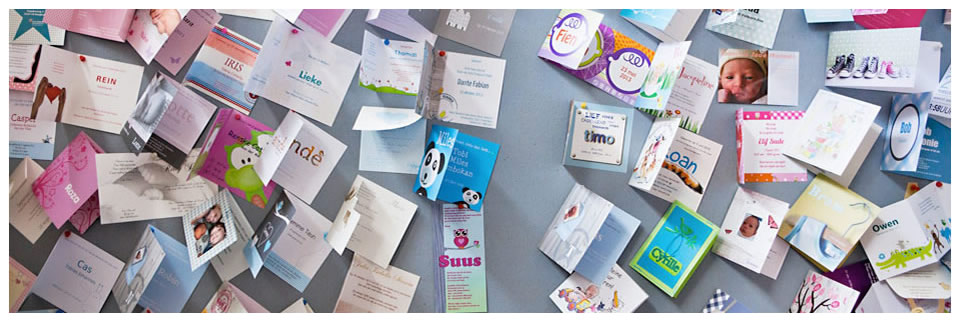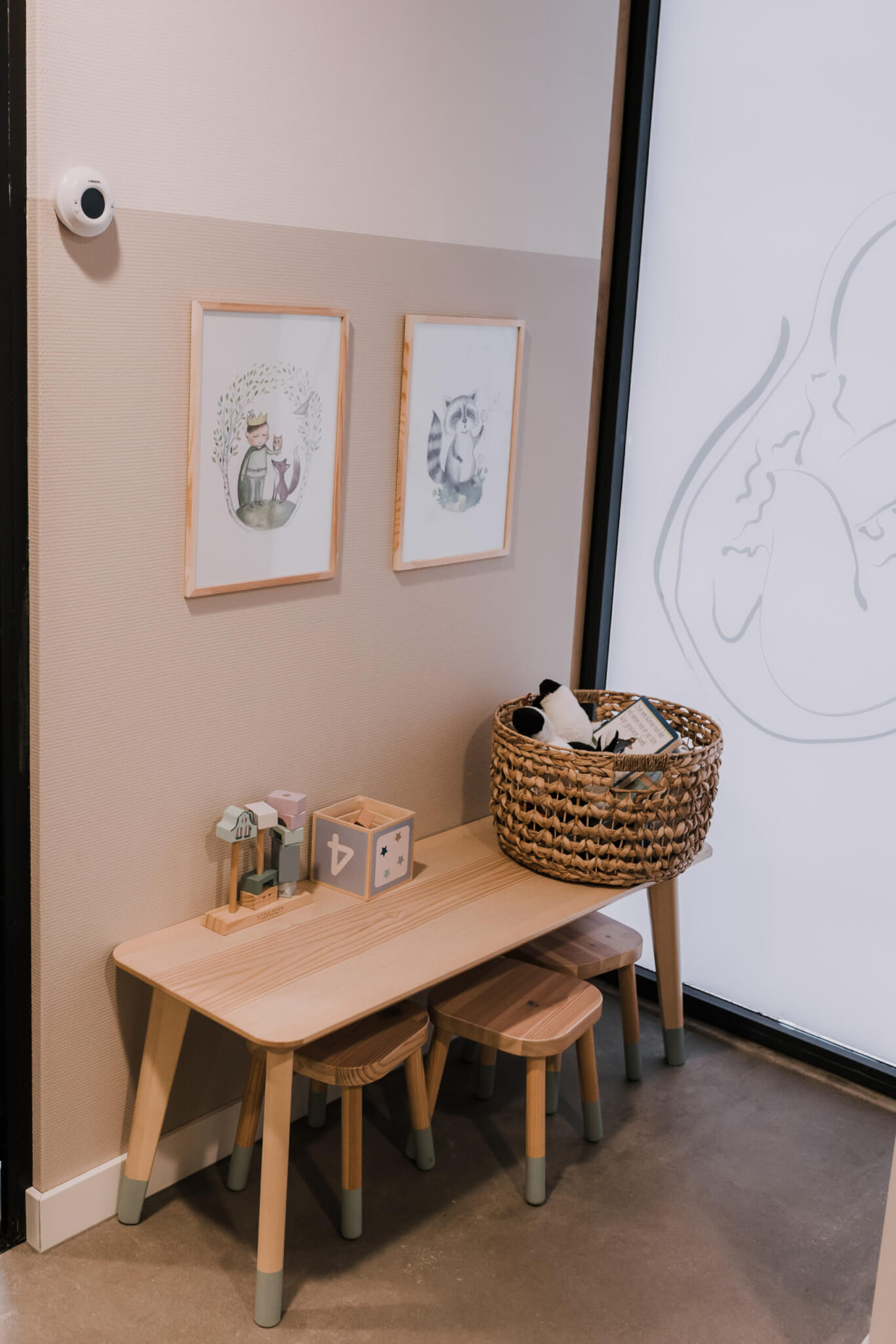
Aftercare
At the end of the maternity week, approximately 1 week after your delivery, we will visit you for the last time. The maternity nurse will also visit you for the last time after 8 days, unless there are special circumstances.
When your baby is about 2 weeks old, the district nurse will pay you a home visit. After that, you will regularly take your baby to the clinic (‘GGD consultatiebureau’) for check-ups.
For any questions regarding pregnancy, childbirth, maternity period and / or breastfeeding, please feel free to call us. If we cannot answer your question, we can always refer you if necessary.
Below we have listed a number of things that we will also discuss with you during our last visit:
About 6 weeks after your delivery, if you like, you are invited to visit the practice for a follow-up check-up. You can make an appointment yourself. If you prefer, you can also tell us which midwife you would like to visit. If you have specific questions and / or complaints about the delivery, we advise you to schedule an appointment with the midwife who helped you during your delivery.
During this session we discuss whether your recovery is proceeding in the normal way. We are also curious to hear from you how you look back on the period of pregnancy and delivery. If necessary, we will check your blood pressure, iron level and check whether your stitches have healed properly. Tips and advice regarding contraception, pelvic floor exercises and a possible subsequent pregnancy are discussed too.
Babies cry from the moment they are born. It is one of the ways babies show what they need. A baby may cry when it is hungry, has a dirty diaper, wants attention, is in pain, unwell, stressed or just tired and wants to sleep.
Normal crying behavior
From birth to 6 to 8 weeks of age, babies cry more. At the age of 6 to 8 weeks, babies cry an average of 2 to 2.5 hours a day. After that, the number of hours babies cry per day decreases again. After roughly 3 months the crying time has reduced 1 to 1.5 hours per day.
From 4 months on, babies are more interested in their environment. They can communicate and make contact more easily. This gives babies more opportunities to express themselves. The crying will then diminish more.
From 7 months, babies start using more and more gestures and words which will result in even less crying. A baby often cries at this age only as a last resort. For example in case of fatigue or stress.
What can you do?
It is important to look closely at your baby so that you can learn to recognize the signals. Often the crying stops when you respond to the signals. For example, by feeding, changing, comforting your baby by holding him close to you, by talking to him or by putting your baby to bed on time. You can also try to prevent crying by keeping your baby with you a lot and by creating more regularity and a peaceful environment.
Lots of crying
It is very annoying and stressful when your baby keeps crying and you don’t know why. This can make you feel very, very powerless. Usually there is no medical reason, but it is important to check this. If you have any questions about your baby’s crying behavior, please contact your GP or the ‘Centrum voor Jeugd en Gezin’ (Center for Youth and Family) (CJG).
Most women experience some form of an emotional labile period in their maternity week, which is often referred to as baby blues. Please also refer to common complaints in the maternity period.
For roughly 10% of the new mothers, this unstable feeling does not go away. These women often feel sad and hopeless. They lose confidence in themselves and take less care of themselves. This gives them a lot of guilt towards their newborn, which can make the situation quite difficult.
Women in this situation often feel that no one will understand the feelings they have, after all, shouldn’t they be happy? As a result, they often feel detached from their surroundings. As a partner you can also feel insecure and lost in this.
Obviously, these women need help. Then either you, your partner or someone close should call us or your GP urgently!
For more information, visit kraamtranen.nl or the website of therapist Hetty Belgraver. Both links are in Dutch though.
During the first days after giving birth, take sufficient rest and limit the (frequent) walking of stairs. Pregnancy and childbirth can cause pain in your pelvis. These complaints can slowly improve through rest, relaxation and exercises. Discuss your complaints with us and, if necessary, consult a pelvic and / or physiotherapist for tips and advice after your delivery.
During childbirth, the pelvic floor muscles are stretched considerably. After delivery, these muscles slowly regain their old shape and strength, but that takes some time. During this period, women may suffer from pelvic floor complaints such as:
- leakage of urine, especially when coughing, sneezing, lifting (stress urinary incontinence)
- not being able to stop wind very well
- loss of stool
- a heavy feeling of pressure in the lower abdomen and pelvic floor
- pain in the pelvic floor area
- pain during sex
Often little attention is paid to these complaints as many women think that it is part of it and one has to simple deal with it. Many think that the complaints will disappear automatically, but, unfortunately, that is not always the case. If the above complaints are still not decreasing 6 weeks after delivery, it makes sense to do something about this and to contact a pelvic floor specialist. With the right guidance, pelvic floor complaints can be treated well, and life becomes a lot more pleasant!
Refer to Links for physiotherapists and pelvic floor specialists from whom we have heard good reviews.
Please refer to the dedicated section on our website: Sexuality and contraception.
Don’t throw away your unused maternity materials, you can make the Baby Hope Foundation very happy with this. They collect maternity materials for maternity projects in Africa, South America and Eastern Europe. The aim is more hygiene during childbirth, so that more women can keep their newborn babies healthy and well! For more information, refer the website of the Baby Hope Foundation.
Postnatal
Contact

Would you like to register or do you have a question?
Contact us →
News
Move
New location As of April 1, we will move to our new location near Emiclaer, ‘Het masker 208/210’, is under …
Dutch midwifery system
In Holland we are unique! For some women it is different, another system than in their home country. This film …
English website online
The English translation of our website is complete and now available! We welcome your feedback in case of inconsistencies, mistakes, …
 Verloskundigen Amersfoort is gewaardeerd op ZorgkaartNederland.Bekijk alle waarderingen of plaats een waardering
Verloskundigen Amersfoort is gewaardeerd op ZorgkaartNederland.Bekijk alle waarderingen of plaats een waardering